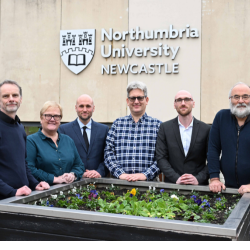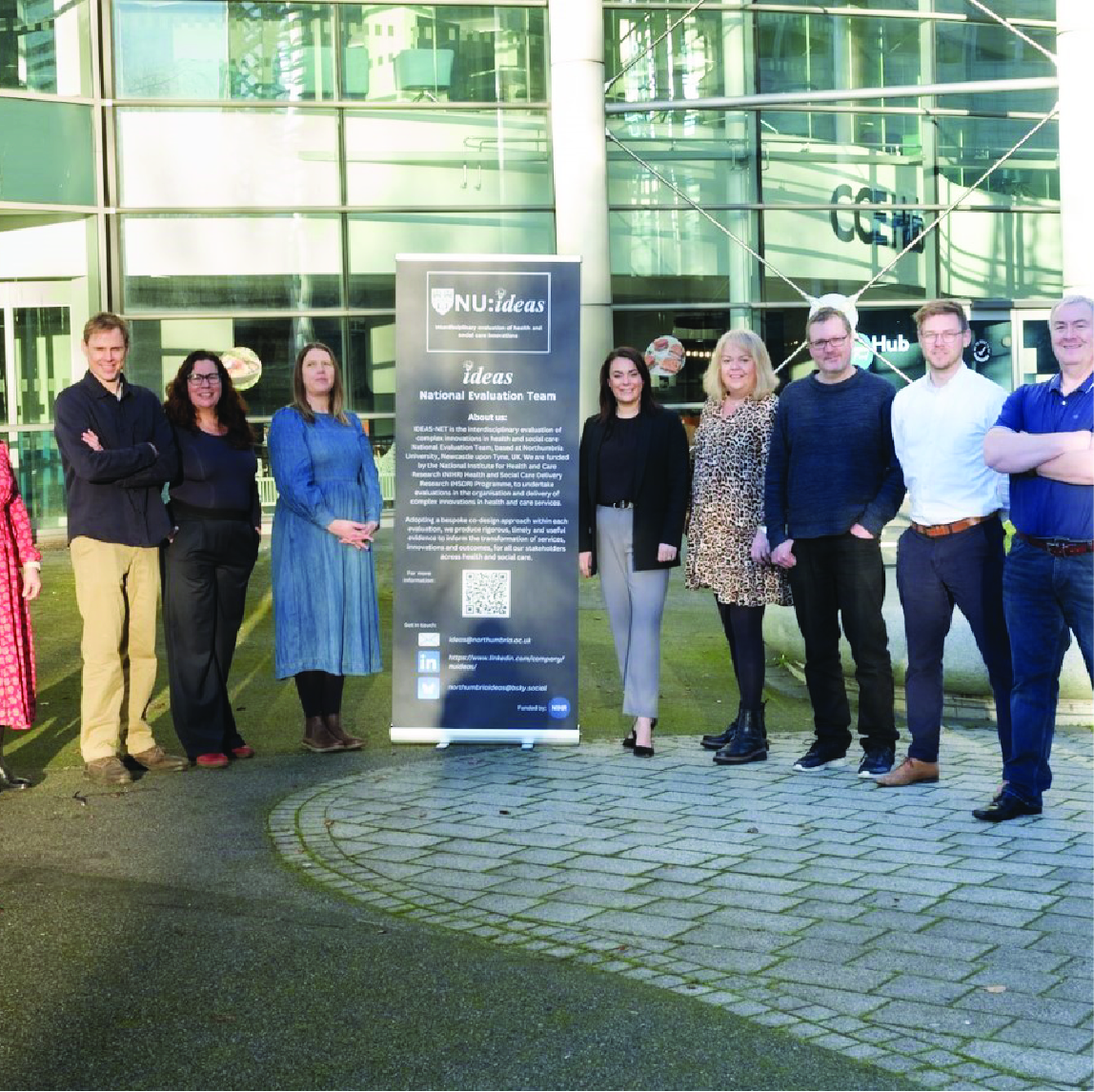-
Study
-
Quick Links
- Course Search
- Unlock Your Potential
- Still time to Apply
- Higher and Degree Apprenticeships
- Continuing Professional Development
- Still time to apply
-
Undergraduate
- Course Search
- Application Guides
- UCAS Exhibitions
- Foundation Years
- Fees and Funding
- School & College Outreach
- Information for Parents
-
Postgraduate
- Course Search
- Application Guide
- Postgraduate Research Degrees
- Flexible Learning
- Fees and Funding
- Change Direction
- Register your Interest
-
Student Life
- Students' Union
- The Hub - Student Blog
- Accommodation
- Northumbria Sport
- Support for Students
-
Experience Northumbria
- Open Days & Events
- Virtual Tours
- Campus Tours
- Life in Newcastle
-
-
International
International
Northumbria’s global footprint touches every continent across the world, through our global partnerships across 17 institutions in 10 countries, to our 277,000 strong alumni community and 150 recruitment partners – we prepare our students for the challenges of tomorrow. Discover more about how to join Northumbria’s global family or our partnerships.
View our Global Footprint-
Quick Links
- Course Search
- Undergraduate Study
- Postgraduate Study
- Information for Parents
- London Campus
- Northumbria Pathway
- Sign up for Information
-
International Students
- Information for Students
- International Events
- Application Guide
- Entry Requirements and Education Country Agents
- Global Offices
- English Requirements
- English Language Centre
- International student support
-
International Fees and Funding
- International Undergraduate Fees
- International Undergraduate Funding
- International Masters Fees
- International Masters Funding
- International Postgraduate Research Fees
- International Postgraduate Research Funding
-
International Partners
- Agent and Representative Network
- Global Partnerships
- Global Community
-
International Mobility
- Information for Northumbria Students
- Information for Incoming Exchange Students
-
-
Business
Business
The world is changing faster than ever before. The future is there to be won by organisations who find ways to turn today's possibilities into tomorrows competitive edge. In a connected world, collaboration can be the key to success.
More on our Business Services -
Research
Research
Northumbria is a research-rich, business-focused, professional university with a global reputation for academic quality. We conduct ground-breaking research that is responsive to the science & technology, health & well being, economic and social and arts & cultural needs for the communities
Discover more about our Research -
About Us
-
About Northumbria
- Our Strategy
- Our Staff
- Place and Partnerships
- Leadership & Governance
- Academic Departments
- University Services
- History of Northumbria
- Contact us
- Online Shop
-
-
Alumni
Alumni
Northumbria University is renowned for the calibre of its business-ready graduates. Our alumni network has over 246,000 graduates based in 178 countries worldwide in a range of sectors, our alumni are making a real impact on the world.
Our Alumni - Work For Us
What will I learn on this module?
You will learn to establish the scope, aims and objectives of a research topic, developing a clear problem statement and identifying specific research questions to be answered. You will acquire an understanding of research ethics, being required to complete an online university ethics submission in line with university policy prior to commencing your research project. You will learn to critically review published literature relating to the topic, including how to distinguish between different types of literature such as peer-reviewed or ‘grey’ literature. You will learn how to select research methods appropriate to answer your research questions and how to design a programme of research to achieve your project aims with the resources at your disposal. You will then gain knowledge and experience in applying specific research methods, for example laboratory practice or specific applications software for computer modelling. You will learn how to critically evaluate research results and how to draw specific conclusions against objectives set out at the start of the project. You will then learn how to structure and write an appropriate technical output detailing your findings and how to consider various options for disseminating your findings to a wider audience, for example posters, conference papers, journal articles and client reports. Underlying all this you will learn to identify and manage health and safety risks, risks to the successful completion of the project and any ethical issues associated with your project.
How will I learn on this module?
You will learn by means of an initial short series of lectures/presentations, setting out the aspects of project work which are general to all students, including scoping, setting aims and defining research questions, literature reviewing and safety, risk and ethical concerns. After this you will self-direct your project with the aid of regular meetings with your academic supervisor who will give you tailored advice at every stage.
How will I be supported academically on this module?
For the individual research project, formative assessment will be through regular interaction with your project supervisor, either face to face or online. Your supervisor will discuss the progress of the work regularly with you, make suggestions and, where necessary, advise on any significant changes of direction for the work. The feedback involved in these discussions will be aimed at allowing you to reflect and feed forward improvements to the work. Written and verbal feedback will be provided on the final work submitted for the project to allow you to reflect for the future.
What will I be expected to read on this module?
All modules at Northumbria include a range of reading materials that students are expected to engage with. Online reading lists (provided after enrolment) give you access to your reading material for your modules. The Library works in partnership with your module tutors to ensure you have access to the material that you need.
What will I be expected to achieve?
Knowledge & Understanding:
1. Demonstrate subject-specific knowledge related to the topic of your project and how it fits into a wider civil engineering context.
2. Employ the process of research, including defining the topic, selecting appropriate methods and dissemination of findings to potential beneficiaries.
Intellectual / Professional skills & abilities:
3. Define a project topic, identify the problem and the need for a solution, set aims and scope, identify and set strategies to manage health and safety risk and project completion risk.
4. Conduct a critical review of appropriate literature and write it up in a form appropriate to the research field of your topic.
5. Communicate technical concepts in appropriate ways depending on the topic and intended audience, and make appropriate use of the written word and imagery of various sorts.
Personal Values Attributes (Global / Cultural awareness, Ethics, Curiosity) (PVA):
6. Identify and apply strategies to manage ethical risks associated with your research, including safety and sustainability considerations.
7. Demonstrate the capacity to learn by research, including review of previous work and conducting your own research with curiosity and creativity.
How will I be assessed?
You will write a substantial thesis to be submitted towards the end of the academic year. This will be of 10000 words in length and worth 90% of the module marks. It will assess ALL module learning outcomes.
Your thesis must be a record of your research aims, method, results, discussion and conclusions, and must make clear your understanding of previous work, the specific research question(s) you have addressed and your contribution to knowledge.
You will defend your thesis via an oral examination (viva voce) which will take place after the written document has been submitted and reviewed. The viva will be no more than 20 minutes in length. Your performance during the viva will be considered along with your written document in determining your mark for your thesis.
In addition, you will be required to give a presentation of your research plan in semester 1. This will be no more than 20 minutes in length and worth 10% of the module marks. It will assess ALL module learning outcomes in part.
You will receive regular formative feedback via meetings with your supervisor which you are expected to arrange as required, typically at least weekly throughout the teaching periods of semesters 1 and 2.
Pre-requisite(s)
N/A
Co-requisite(s)
N/A
Module abstract
Research into the solution of problems is a vital skill for civil engineers and is a vital employability skill which will be applicable in many different ways throughout your career. This module allows you to develop your research skills by means of a substantial individual project based on an area of civil engineering related research, which will typically be related to research being undertaken by the academic staff of the department. This might encompass the creation of new knowledge and new techniques, their deployment in industry, the study and refinement of known problems or work with specific external organizations such as civil engineering or construction companies on a project related to their business. It could also encompass a design or construction in which external collaborators are involved. You can choose from a variety of research methods, including (but not limited to) laboratory testing, field testing, computer modelling, social research methods on the ‘people’ aspects of civil and construction engineering. You will work with an individual academic supervisor as well as with other members of teams such as university technicians or staff of external partner companies. We will suggest topics for you to choose, but you may also be able to develop your own ideas in consultation with academic staff. The expectation is that, whilst you will learn research skills relevant to your career, you will also make a real contribution to the advancement of knowledge in civil or construction engineering and will produce a substantial written output that will remain as a record of your achievement and which you can use to demonstrate your abilities to potential employers.
Course info
UCAS Code H200
Credits 40
Level of Study Undergraduate
Mode of Study 3 years Full Time or 4 years with a placement (sandwich)/study abroad
Department Mechanical and Construction Engineering
Location City Campus, Northumbria University
City Newcastle
Start September 2025 or September 2026
All information is accurate at the time of sharing.
Full time Courses are primarily delivered via on-campus face to face learning but could include elements of online learning. Most courses run as planned and as promoted on our website and via our marketing materials, but if there are any substantial changes (as determined by the Competition and Markets Authority) to a course or there is the potential that course may be withdrawn, we will notify all affected applicants as soon as possible with advice and guidance regarding their options. It is also important to be aware that optional modules listed on course pages may be subject to change depending on uptake numbers each year.
Contact time is subject to increase or decrease in line with possible restrictions imposed by the government or the University in the interest of maintaining the health and safety and wellbeing of students, staff, and visitors if this is deemed necessary in future.
Useful Links
Find out about our distinctive approach at
www.northumbria.ac.uk/exp
Admissions Terms and Conditions
northumbria.ac.uk/terms
Fees and Funding
northumbria.ac.uk/fees
Admissions Policy
northumbria.ac.uk/adpolicy
Admissions Complaints Policy
northumbria.ac.uk/complaints









